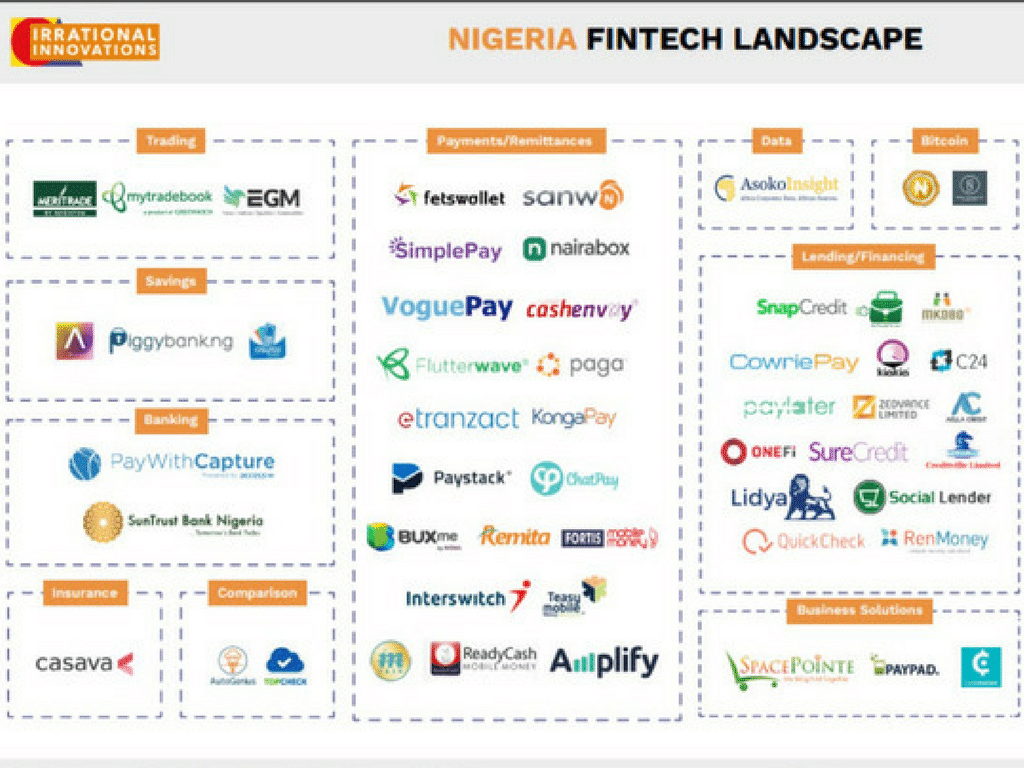Startup innovation has been on the rise in Africa, especially in Nigeria. In a report, we shared that the country now has the second highest number of tech hubs on the continent. Yet, even as innovations continue to support sectors like tourism and logistics, the most important sector remains the financial sector.
FinTechs, which are simply startups providing financial services, are becoming more and more profound and omnipresent. Previously, companies like VoguePay, Eyoowo, Remita, and QuickTeller were the only names. And they focused majorly on eCommerce payments solutions.
Analysts are confident that FinTech has the potential to transform the financial services landscape in Nigeria over the next five years. We are looking to the youth to take up the challenge and grasp the opportunities, to drive entrepreneurship in this area.
— Bukola Saraki (@bukolasaraki) July 22, 2018
Now, there is a myriad of FinTechs providing different kinds of financial services. From loans, foreign remittances to insurance, startups have emerged to disrupt this sector and provide a more lean and flexible approach to service delivery in those areas.
They include startups like Flutterwave, PayStack, PayLater (owned by One Financial), PiggyBank, CowryWise, among many others.
FinTech in Nigeria is 🔥🔥🔥🔥. Lets be grounded that we are still in Nigeria aka ‘upside down Wakanda’. In case we forget N11Bn fraud using @eTranzactPLC platform, €200k Fraud at @NairaBET and countless others. Its like fraud is in our peoples DNA. 419 is the tip of the spear
— JasonNjoku (@JasonNjoku) May 24, 2018
But why are there so many FinTech startups? Why are they on the rise? Are they a threat to traditional banks? Aren’t they likely to disappear when banks begin to compete with them? These are all interesting questions. And understanding them is key to knowing why FinTechs are on the rise.
What Sets FinTechs Apart?
Unlike traditional banks, FinTechs focus on one or a few sectors of the finance industry and disrupt it. Traditional financial services providers are wrapped up with flexibility issues that make it hard for them to move quickly and spontaneously into some of these subsectors.
From regulatory issues to challenges in altering legacy technologies, traditional financial services providers are quite handicapped.


FinTechs, on the other hand, are by nature, flexible and lean. And thanks to their lean nature, these companies have limited regulatory limitations, thus, allowing them more room to disrupt the finance industry.
FinTechs and the Decoupling of Financial Services
FinTechs focus on limited sub-sectors in the finance industry and aim to bring efficiency to it. For instance, PiggyBank focuses on savings and helps its customers get higher returns on their savings.
Meanwhile, PayLater is into digital loans. It provides quick loans to its customers and now has an investment package that is easily accessible.


Other companies like SureRemit and FlutterWave are equally innovating effective solutions for foreign remittances.
With limited focus, these startups easily attain economies of scale, good enough for them to expand into other markets. Also, with a large number of people yet to receive banking services, FinTechs represent the best opportunity to reach them.
And investors are keen to see them keep up the pace. In 2017, FinTechs in Africa received a third of the $195 million invested in the continent’s startups. And just recently, PiggyBank raised over $1 million to scale its own platform.
Will FinTechs Replace Banks?
This is certainly the question industry watchers keep asking. With news that PiggyBank is close to acquiring a banking license, this may not be a mere insinuation anymore.
Banks in Nigeria only give loans to the rich, don’t want telecoms to prosper with mobile money and are now complaining that FinTech is eating into their market share.
Interesting.
— Dog Eater (@Bottledpaul) July 27, 2018
However, FinTechs appear unlikely to replace traditional banks. If anything, FinTechs’ decoupled nature could certainly force banks to cede some activities. And the CBN believes this will happen. However, in the long run, industry players and regulators expect both types of companies to work together.
In the meantime, FinTechs will keep growing and innovating. And more and more investments will come their way as they continue to reach new frontiers.






